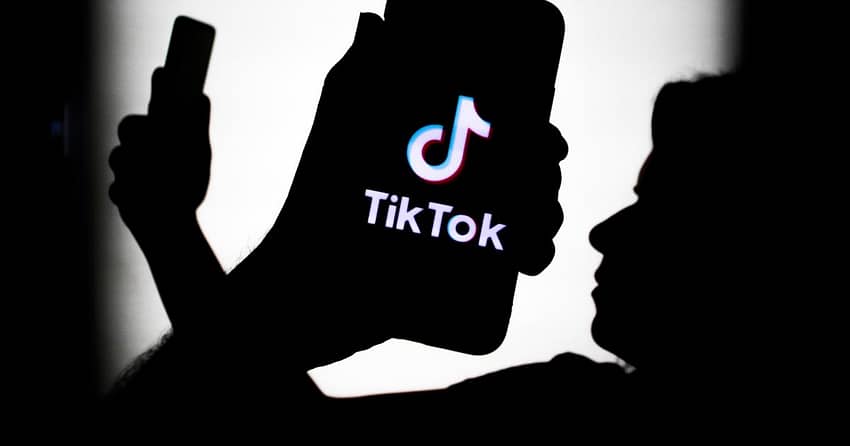Recent news revels TikTok exposed targeting teens with its app. It’s no secret that social media platforms, like TikTok, have a tremendous impact on young people. However, recent scrutiny has revealed that TikTok, a popular app among teenagers, employs sophisticated techniques to engage and influence its users, often without them realizing the depth of its influence. From algorithmic manipulation to online propaganda, TikTok and similar platforms can target teens in ways that raise concerns about privacy, mental health, and digital autonomy.
The Rise of Online Propaganda: TikTok Exposed Targeting Teens
As one of the fastest-growing social media platforms, TikTok has gained over 1 billion monthly active users globally, with teens and young adults being its most significant demographic. The app’s ability to keep users engaged revolves around its highly sophisticated algorithm. But what many don’t realize is how this technology also plays a role in promoting online propaganda—carefully curated content that can sway opinions, reinforce biases, and even push harmful trends.
TikTok has been criticized for its lack of transparency regarding how its algorithm works and what types of content get pushed to the forefront. While the app is designed to tailor content based on user interaction, this creates echo chambers where teens are exposed to repetitive viewpoints, potentially fueling polarized ideologies and misinformation.
With online propaganda, this becomes a significant concern. For example, politically charged videos or harmful social trends can easily go viral and spread across teen communities, affecting how they perceive the world around them. TicTok exposed targeting teens isn’t just about entertainment—it’s about shaping opinions in ways that are often unseen and unchecked.
According to various reports, propaganda techniques on TikTok include using emotional manipulation, sensationalism, and misinformation. These tactics are known to influence users, especially teens, who are still developing critical thinking skills. When faced with repeated exposure to certain themes or messages, many young users can fall into the trap of believing these narratives without questioning their authenticity.

The latest news: TikTok exposed targeting teens is spreading on social platforms everywhere, check out these sources:
How TikTok Targets Teens Through Its App
TikTok’s design itself plays a huge role in targeting teens. The app uses a combination of short, engaging videos and a continuous scroll feature that keeps users hooked for hours on end. For teens, whose attention spans are still developing, this can create a compulsive need to keep interacting with the app.
By collecting extensive data on user behavior—likes, comments, shares, and watch time—TikTok personalizes its “For You” feed to cater to each user’s preferences. The danger? This level of personalization can push content that aligns with a teen’s interests but also makes it easier for malicious actors to target them with propaganda, misinformation, or dangerous challenges that spread across the platform.
Additionally, TikTok’s partnerships with influencers who promote branded content or even political messages without full transparency further contributes to the problem. Many teens idolize these influencers and mimic their behavior, leading to a deeper entanglement with the content being pushed to them.
As TikTok continues to evolve, so do the methods of influencing and targeting its users. Whether through viral trends, memes, or influencer collaborations, the platform’s influence on teenage behavior and mindset cannot be understated. It’s important for parents, educators, and teens themselves to be aware of how easily these subtle strat
The Broader Impact of TikTok’s Influence on Teens
As we’ve seen, TikTok exposed targeting teens isn’t just about what videos they watch—it’s about the broader implications on their development. Studies have shown that overexposure to certain types of content on social media can lead to anxiety, depression, and feelings of inadequacy. Teenagers are particularly susceptible to comparing themselves to the carefully curated lives of influencers and peers on TikTok, often leading to unrealistic expectations and negative self-perception.
Moreover, the addictive nature of TikTok’s infinite scroll, combined with its targeted content, can result in teens spending hours on the app each day. This not only affects their academic performance and social interactions but can also limit the time they spend engaging in more meaningful, real-world activities.
Experts have also warned about the potential for indoctrination through propaganda content. Whether it’s politically motivated messages or harmful trends that encourage risky behavior, the implications for teens are serious. It’s essential for users and their guardians to remain vigilant about the types of content being consumed and the messages being absorbed.
In light of all this, conversations around digital literacy are more important than ever. Teens should be educated on how to critically assess the information they encounter online, distinguish between factual content and manipulative propaganda, and recognize the influence that platforms like TikTok have over their behavior and worldview.
Thank you for taking the time to read my story about teens being targeted by TikTok and its broader impact on the digital landscape. Do you think these concerns are overblown, or are we just beginning to uncover the full scope of TikTok’s influence? Drop a comment below and share your thoughts—we’d love to hear from you!
If you enjoyed this article, be sure to like and subscribe to our site to stay informed on future updates. And if you found this post helpful, consider sharing it with your friends! Every share helps spread the word. Plus, if you’d like to support our work, consider making a small donation to help us continue publishing high-quality content.

